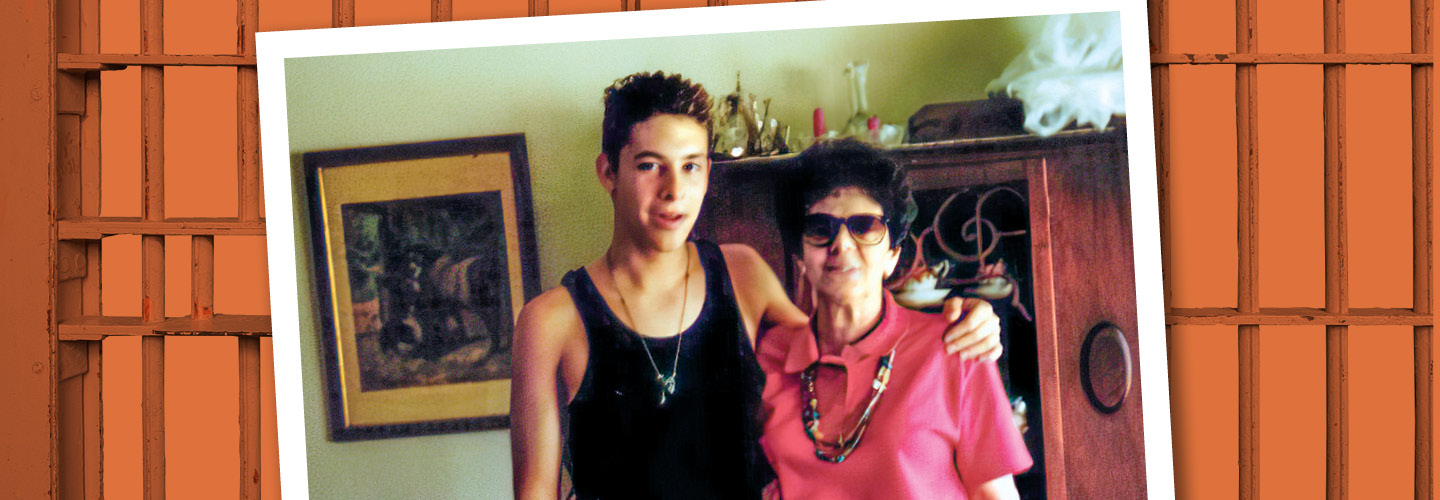Cedric Rue was 16 years old when he committed the crime that put him in prison for the rest of his life.
It was 1998, and Rue was struggling with drugs and alcohol. One day, he was camping with some friends in Arizona when he and another teenager shot and killed a 41-year-old named Michael Decker. Rue was tried as an adult and convicted of first-degree murder. The judge sentenced him to life without the possibility of parole, condemning him to die behind bars. (His friend, William Najar, also got life without parole.)
“I hardly understood what was happening every time we went to court,” says Rue, who is incarcerated at Red Rock Correctional Center in Eloy, Arizona. “When we got locked up, I knew we were going to prison—we deserved to for what we did. But I didn’t think it would be for the rest of my life. It felt like I was in a haze or The Twilight Zone.”
Now 39 years old, Rue has spent more of his life in prison than outside of it. He’s one of more than 1,400 people in the U.S. serving life without parole sentences for offenses they committed as juveniles, according to the criminal-justice reform group the Sentencing Project.
In recent years, there’s been a growing trend away from sentencing minors to life without the possibility of parole. Citing scientific research that the teenage brain isn’t yet fully developed, the Supreme Court has ruled that life without parole sentences for people under 18 violate the Eighth Amendment’s prohibition against “cruel and unusual punishments.”
Cedric Rue was 16 years old when he committed the crime that put him in prison for the rest of his life.
It was 1998, and Rue was struggling with drugs and alcohol. One day, he was camping with some friends in Arizona. He and another teenager shot and killed a 41-year-old named Michael Decker. Rue was tried as an adult and found guilty of first-degree murder. The judge sentenced him to life without the possibility of parole. That meant he’d die behind bars. His friend, William Najar, also got life without parole.
“I hardly understood what was happening every time we went to court,” says Rue, who is incarcerated at Red Rock Correctional Center in Eloy, Arizona. “When we got locked up, I knew we were going to prison—we deserved to for what we did. But I didn’t think it would be for the rest of my life. It felt like I was in a haze or The Twilight Zone.”
Now 39 years old, Rue has spent more of his life in prison than outside of it. He’s one of more than 1,400 people in the U.S. serving life without parole sentences for offenses they committed as juveniles, according to the criminal-justice reform group the Sentencing Project.
In recent years, there’s been a growing trend away from sentencing minors to life without the possibility of parole. The Supreme Court has ruled that life without parole sentences for people under 18 violate the Eighth Amendment’s prohibition against “cruel and unusual punishments.” The Court’s ruling cites scientific research that the teenage brain isn’t yet fully developed.

